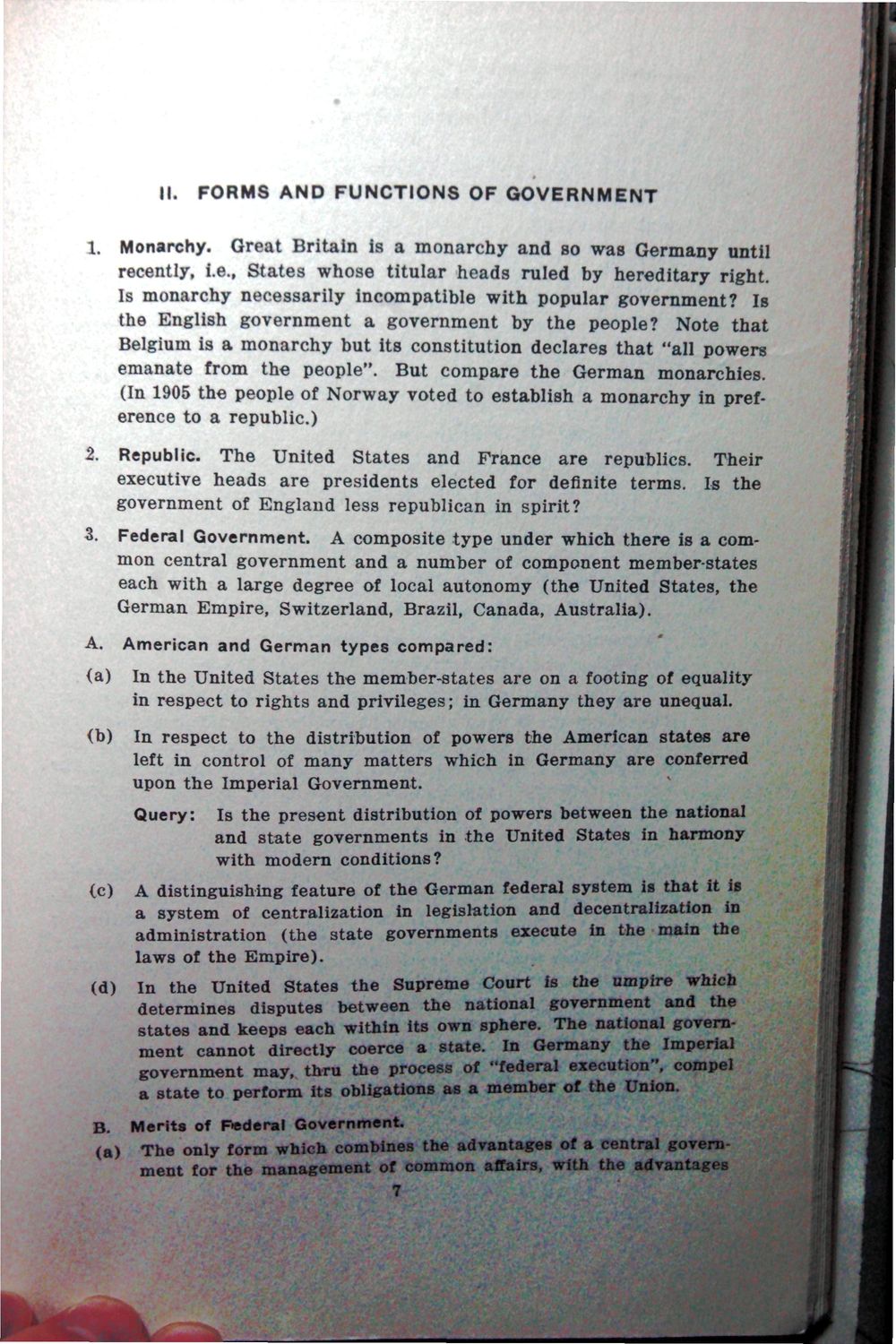Caption: War Publications - WWI Compilation 1923 - Article 48
This is a reduced-resolution page image for fast online browsing.

EXTRACTED TEXT FROM PAGE:
I . FORMS AND FUNCTIONS OF GOVERNMENT I 1. Monarchy. Great Britain is a monarchy and so was Germany until recently, i.e., States whose titular heads ruled by hereditary right. Is monarchy necessarily incompatible with popular government? Is the English government a government by the people? Note that Belgium is a monarchy but its constitution declares that "all powers emanate from the people". But compare the German monarchies. Norway erence to a republic.) 2. Republic. The United States and France are republics. Their executive heads are presidents elected for definite terms. Is the government of England less republican in spirit? Federal Government. A composite type under which there is a common central government and a number of component member-states each with a large degree of local autonomy (the United States, the German Empire, Switzerland, Brazil, Canada, Australia). American and G e r m a n types compared: 3. A. (a) (b) In the United States the member-states are on a footing of equality in respect to rights and privileges; in Germany they are unequal. In respect to the distribution of powers the American states are left in control of many matters which in Germany are conferred upon the Imperial Government. national Query: harmony with modern conditions? (c) A distinguishing feature of the German federal system is that it is a oratom of noTitraii**tinn in legislation and decentralisation in main laws of the Empire). (d) In the United States the Supreme Court is the umpire which determines disputes between the national government and the states and keeps each within its own sphere. The national government cannot directly coerce a state. In Germany the Imperial government may, thru the process of "federal execution", compel a state to perform its obligations as a member of the Union. B. Merits of Federal Government. (a) The only form which combines the advantages of a central government for the management of common affairs, with the advantages 7
|